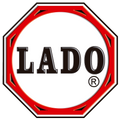Neurologists and educational psychologists warn of the risk of replacing notebooks with new technologies
The ease with which the little ones adapt to the “digital age” is amazing. The smartest, barely three years old, are already capable of typing their name into their parents' mobile phones and sending it, along with a bunch of icons, via WhatsApp, to the delight of their proud parents. And the educational plans themselves increasingly encourage the use of new technologies, so that the tablet begins to be as common a tool as the notebook had always been.

Apparently, you would think that this is how they learn to recognize letters earlier and it seems that the long hours that previous generations invested in calligraphy would be unnecessary. The speed with which the computer is introduced into the classroom reduces the time that kids have to spend writing by hand. But, does it have any impact on academic performance ? Neuroscientists and psychopedagogues consider it.
Writing by hand has its advantages over using the keyboard. Among them, it facilitates a better knowledge of spelling, greater fluidity of ideas when writing essays, better reading ability and, in addition, enhances memory. Neuroimaging studies show that the brain is activated more when writing than when typing.
In the first case, an internal representation of the letters is created that involves the integration of the visual and motor areas of the brain. In addition, areas related to spelling , sound, and meaning of words are activated. These areas overlap with other fundamental ones in the production and comprehension of language , as well as in the comprehension of reading, which could explain the skills that are enhanced by writing. On the contrary, when children simply type, they are simply representing a map of the keyboard in their brain, according to a study from Indiana University published in "Frontiers in Psychology."
Increased mental effort
Learning to write by hand is a more complex process than typing a few letters and requires more work from the brain. You have to make a mental representation of the letters that are going to be written, and that implies a greater mental effort that is profitable in the long run, explains Juan Lupiáñez, director of the Cognitive Neuroscience group at the University of Granada. The characters that children strive to put in writing are not always the same, like those in print, and this also helps them to generalize and internalize the essential features with which each letter is represented, regardless of the skill with which it is represented. Add.
This deep learning that writing encourages helps them to better recognize the signs they read, with which reading comprehension also increases. And the benefits extend beyond the early years. Taking notes on a computer is less effective for learning than taking notes by hand, according to a study published this month in the journal "Pychological Science." Those who take their notes by hand have a deeper learning of the concepts, while those who type have a more literal memory, but less memory of the important conceptual aspects of the class, says Lupiáñez, who has verified this with his students.

«When you write by hand you do not take note of everything, because there is no time. In return, you do many processes to integrate and select the most important and you elaborate the content”, he explains. On the contrary, the keyboard makes it easier to write much faster, so the tendency is to take literal notes, without processing the information much. "The process is more dynamic by hand, because you place arrows and gradually integrate the information you collect, something that is more difficult to do with the computer," explains Lupiáñez. "Handwriting is preferable because it activates more brain areas" In any case, he points out, what is important is the use made of the computer, which can be very useful if used properly, because it avoids memorizing data that can be found on the Internet but It requires having clear ideas to know how to find them. «The important thing is not writing by hand in front of a computer, but that we process information by hand in a much more active way than if we use the keyboard.
For the brain to learn you have to challenge it, put it to the limit of what it knows and what it doesn't. And this is how he is acquiring new knowledge in a solid way”, he concludes. The educational psychologist Pablo Canosa also defends handwriting, since "the process that activates more brain areas is always preferable, because it causes better, deeper and more lasting learning ." «When writing by hand -he explains-, the movements we have to carry out leave a motor trace in the brain that facilitates the subsequent recognition of letters and words. That is, it helps to better learn to read. According to Canosa, a professor at the Villanueva University Center in Madrid and deputy director of Teaching for the Promotion of Teaching Centers, "the representation of each letter, of its spelling, is fixed much better when writing by hand than when doing it with the keyboard." With graphomotor skills, he adds, auditory and visual discrimination, spatio-temporal organization, correct pressure and grasp of the writing instrument and mastery of the hand are developed, among other skills.
Article Published in ABC digital on 06/17/2014


Leave a comment